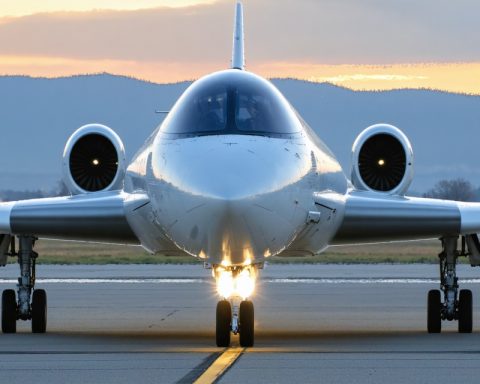The prospect of Turkey acquiring the much-coveted F-35 fighter jets from the United States is resurfacing. According to sources from Turkish media outlet Haber Global, the Turkish Defense Minister, Yaşar Güler, recently revealed fresh developments in the ongoing negotiations.
Turkey’s renewed efforts to secure the F-35s involve submitting another request to the US. This notable progress seems linked to Turkey’s advancements in its aerospace industry. The United States may now be reconsidering its stance as Turkey pushes forward with its indigenous fighter jet, the KAAN.
In the late 2010s, the US halted the delivery of six F-35 jets to Ankara, a decision sparked by Turkey’s purchase of Russian S-400 defense systems. However, recent moves by Turkey to produce and potentially deploy the KAAN fighter jet, which successfully executed its maiden flight in early 2024, may have prompted Washington to revisit the deal.
Turkey takes the lead in developing KAAN, with plans for mass production by 2028. The project gained international ties when the Azerbaijani Ministry of Defense Industry and Turkish Aerospace Industries (TUSAŞ) signed a cooperative agreement in July 2023. Following this, reports emerged that a component of the KAAN aircraft would be manufactured in Azerbaijan, signaling a collaborative future in defense technology manufacturing.
These developments point to a shifting landscape in international defense relations, with Turkey at its core, navigating between major powers and domestic innovation.
Turkey’s Aerospace Ambitions: A Boon or a Bane for Global Tech?
Turkey’s renewed vigor in the defense and aerospace sectors isn’t just reshaping diplomatic conversations; it’s paving the way for groundbreaking technological advancements with far-reaching implications. While the potential procurement of the F-35 fighter jets by Turkey may have garnered attention, the real story lies in the transformative impact these developments might have on global technology and innovation landscapes.
Expanding Domestic Innovation: The Rise of the KAAN Fighter Jet
The spotlight is firmly on Turkey’s KAAN fighter jet, emblematic of the country’s ambitious drive towards self-reliance in defense capabilities. This indigenous project not only signifies Turkey’s departure from reliance on foreign military suppliers but also positions it as a growing player in the global aerospace market. The successful maiden flight of the KAAN in early 2024 was a monumental achievement, hinting at Turkey’s potential to become a hub for advanced military technology.
Collaboration Across Borders: Turkey and Azerbaijan’s Strategic Partnership
An intriguing facet of Turkey’s technological ascent is its partnership with Azerbaijan. This collaboration could be a harbinger of more regional defense associations, disrupting traditional global alliances. With parts of the KAAN aircraft slated for production in Azerbaijan, the shared technological development could foster a new era of regional industry partnerships, enhancing the technological prowess of both nations and further diversifying international defense manufacturing sources.
Advantages and Disadvantages: Impact on Global Tech and Defense
The ripple effects of Turkey’s aerospace advancements are manifold. Advantages include:
– Technological Innovation: Turkey’s focus on domestic aircraft development stimulates local industries and promotes skilled workforce growth.
– Economic Boost: Partnering with other countries in manufacturing boosts economic ties and creates jobs, contributing to regional prosperity.
– Strategic Independence: By developing indigenous technologies, Turkey reduces its reliance on foreign arms suppliers, potentially leading to greater national security.
However, there are disadvantages and challenges, such as:
– Geopolitical Tensions: Turkey’s military advancements could be perceived as a threat by neighboring countries, affecting regional stability.
– Potential Economic Strains: The cost of developing such advanced technology could strain national budgets, impacting other areas of public spending.
– Risk of Isolation: As Turkey navigates between major powers, it risks political isolation if perceived as aligning too closely with non-traditional partners.
Questions Arising: What’s Next for Global Defense Technologies?
As countries like Turkey and its allies continue to innovate, questions arise about future implications:
– Could Turkey’s advancements inspire other nations to pursue indigenous defense technologies, thereby shifting global military power balances? The answer seems to be a cautious yes; indigenous programs could proliferate as countries seek self-reliance.
– Will these technologies lead to new norms in international defense diplomacy? Only time will tell, but change appears inevitable as nations navigate between old allegiances and new partnerships.
For readers intrigued by the future of global defense and technology, explore more at Lockheed Martin and Turkish Aerospace Industries.
In conclusion, Turkey’s drive to secure the F-35s while pushing forward with its KAAN fighter jet projects is more than an isolated event; it’s a shift with profound impact on global tech innovation, defense strategies, and international alliances. How these developments unfold will be a narrative best watched with a keen eye on both technological trends and geopolitical dynamics.







